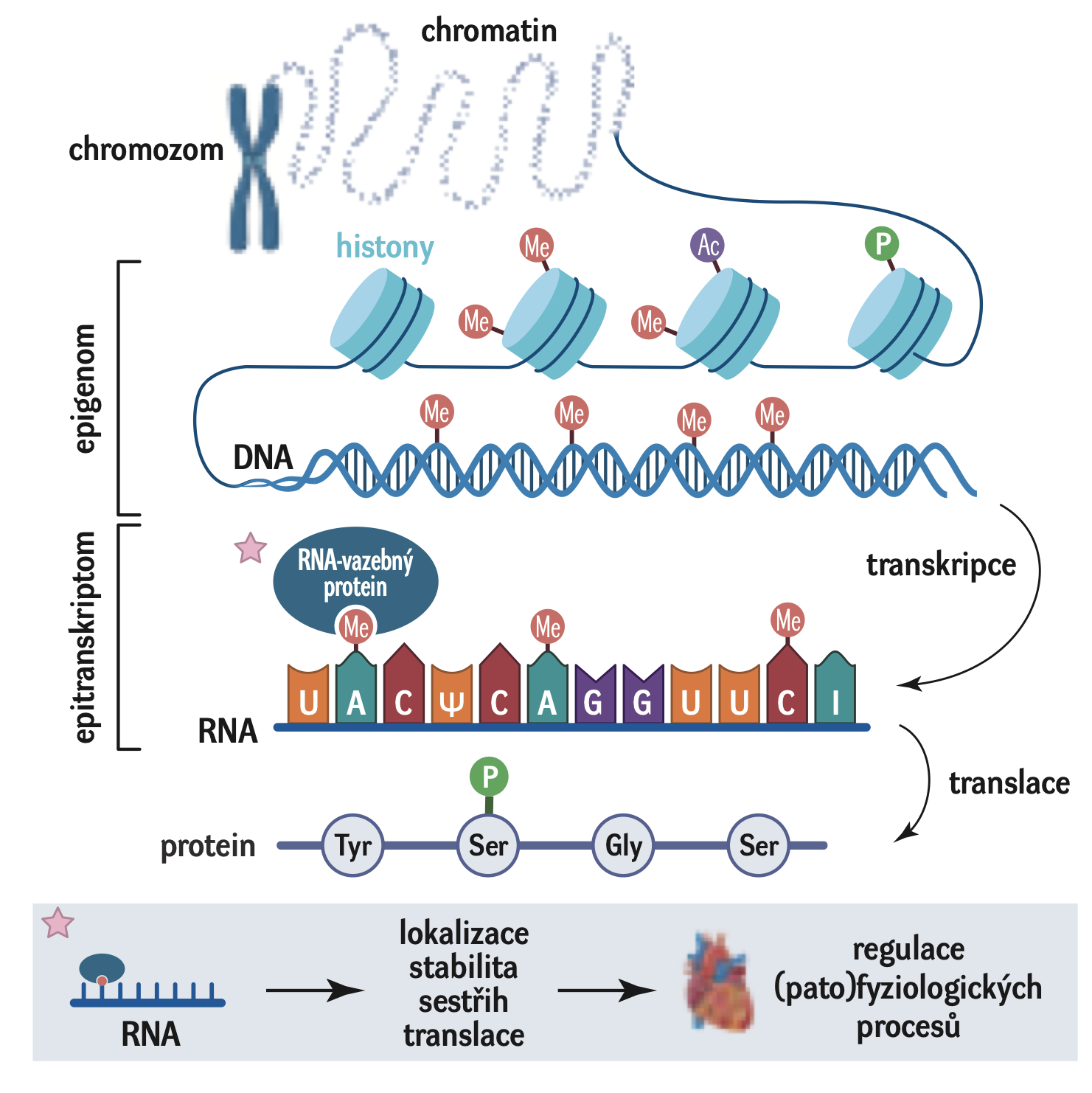
Daniel Benák and Markéta Hlaváčková from the Department of Developmental Cardiology at the Institute of Physiology of the Czech Academy of Sciences focus on studying the epitranscriptome — a set of epigenetic RNA modifications — and its impact on heart health. The epitranscriptome includes chemical modifications of RNA that affect its stability, localization, and ability to produce proteins. These modifications are essential for proper heart development and function.
Disruptions in epitranscriptomic processes can lead to congenital heart defects or contribute to the development of ischemic heart disease and heart failure. The team’s research shows that the enzyme FTO, which demethylates RNA, plays a significant role in protecting the heart after a heart attack, and increased activity of this enzyme may reduce heart tissue damage.
The epitranscriptome can also be influenced by lifestyle factors — such as adaptation to chronic hypoxia (long-term stay at high altitude), short-term fasting, or regular exercise. These changes can enhance the heart’s resilience to damage.
This rapidly developing field offers promising opportunities for new approaches in the prevention and treatment of cardiovascular diseases.
More information can be found here:
https://fgu.cas.cz/wp-content/uploads/2024/07/fyziologickyUstav2024_3_epitranskript.pdf